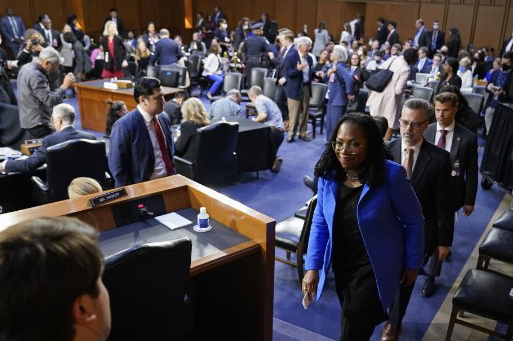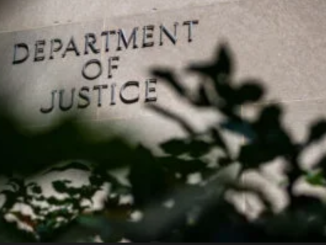
The Senate should not confirm Supreme Court nominee Ketanji Brown Jackson because she does not believe in the Declaration of Independence.
Credit to Ed Whelan of the Ethics and Public Policy Center for catching a worrisome exchange on this topic on page 79 of Jackson’s response to written questions . It’s part of a disturbing trend on the political Left, but Jackson’s response is probably the clearest example of it in judicial nominations to date.
Jackson first was asked to explain the American founders’ theory of “natural rights that are inherent or inalienable.” Jackson correctly identified it as being at the center of the Declaration of Independence, as stated in its famous phrase that people are “created equal, that they are endowed by their Creator with certain unalienable Rights, that among these are Life, Liberty, and the pursuit of Happiness.” Then, she was asked if she had “a position on whether individuals possess natural rights.” Amazingly, she wrote: “I do not hold a position on whether individuals possess natural rights.”
Having identified the central theory undergirding the Declaration of Independence, she then declared agnosticism about it.
This is important, in proper context, in terms of how a judge applies the Constitution and laws.
On one hand, as Whelan noted, “the question of what role, if any, natural rights should play in constitutional decision-making is distinct from the question whether natural rights exist.” Judges who acknowledge natural rights can disagree on how and when they apply and about whether the Constitution also protects some allegedly natural rights that aren’t specifically mentioned in the text.
Nevertheless, it should be a basic starting point that natural rights do exist and are central to the whole design of the U.S. polity. To deny their centrality or their existence is to reject the very basis for most provisions of the Bill of Rights.
Without the assumption that some rights are “natural” (or, as the founders believed, “endowed” by a “Creator”), a judge would make the government not the protector of pre-existing rights, but the all-powerful entity that merely allows citizens to exercise rights the government itself creates or denies at will. In sum, without natural rights, all liberties exist at the government’s discretion, as opposed to being independent of, and superior to, the government.
The latter approach has dangerous real-world consequences. For example, Justice Elena Kagan, in her earlier legal career, repeatedly asserted that First Amendment free-speech guarantees should be subject to a “categorical balancing of the value of the speech against its societal costs.” The rights existed only because the government was “doling out th[e] favor” of those rights .
If the rights are a favor that can be doled out, then they can just as easily be withheld. That’s how the Left justifies speech codes , the heckler’s veto , and other means of shutting down speech unwelcome to a vocal faction.
Not even Kagan, though (unless I missed it somewhere), ever went so far as to refuse to affirm that natural rights exist. Again, without natural rights, the entire edifice of American liberty collapses.
During her hearings, Jackson made quite a show of saying that original meaning and history should govern a judge’s interpretations. Yet if she rejects the essence of the Declaration of Independence itself (which is not part of the Constitution, but the substructure on which the Constitution is built), then she rejects both the history and original meaning of this nation.
That is one more excellent reason , despite Jackson’s other admirable attributes, to reject her nomination for the Supreme Court.
* story by The Washington Examiner


